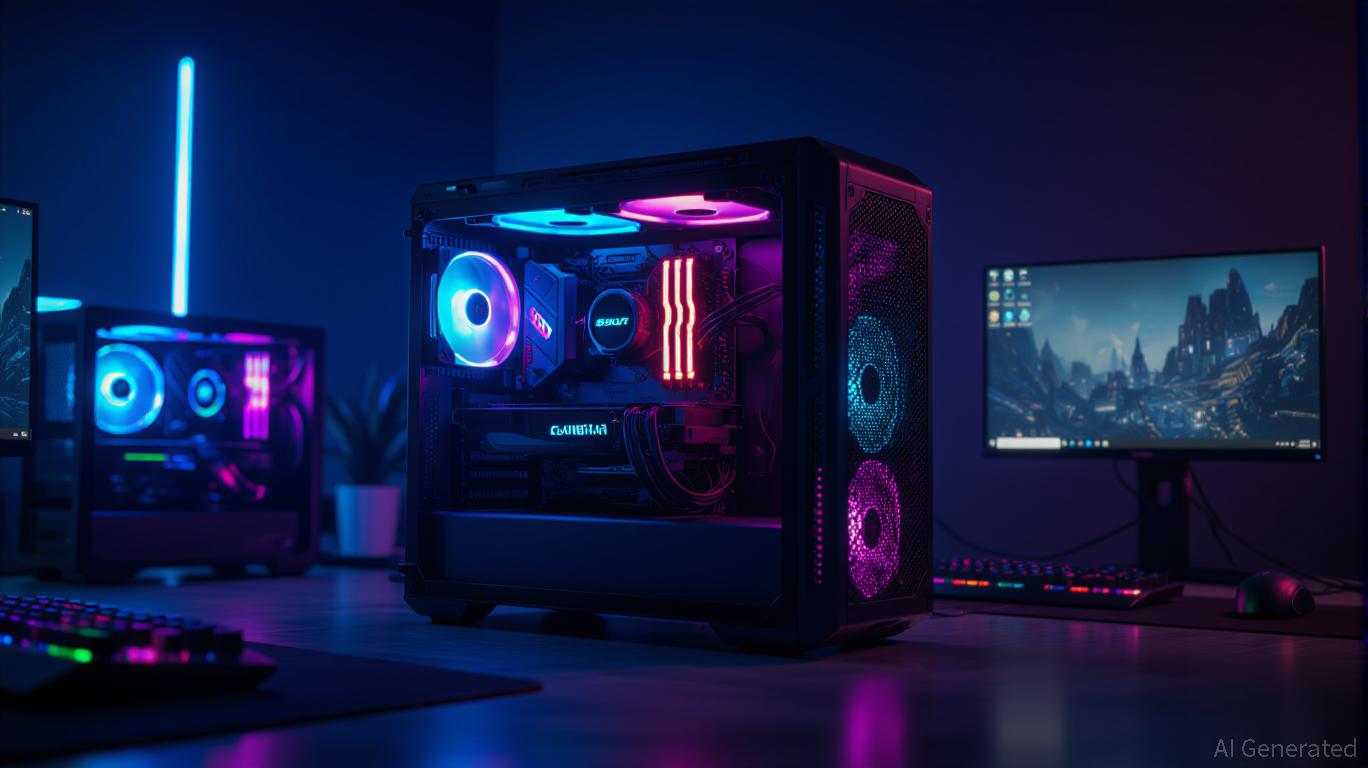The global PC gaming hardware market is undergoing a seismic shift, driven by surging demand for high-performance components, the rise of cloud gaming, and the proliferation of AI-powered gaming technologies. Amid this transformation, Fractal Gaming Group AB (FRGAB.ST) has emerged as a standout player, leveraging strategic innovation and operational discipline to deliver a staggering 49% year-over-year revenue growth in Q2 2025. With net sales of SEK 215.4 million, the company not only outperformed expectations but also demonstrated resilience in a macroeconomic climate marked by currency volatility and supply chain pressures. For investors seeking exposure to a sector poised for long-term expansion, Fractal’s results and strategic positioning warrant a closer look.

Strategic Market Positioning: Expanding Beyond Core Competencies
Fractal Gaming’s success stems from its ability to balance innovation with operational efficiency. While the company has long been a leader in PC case design and cooling solutions, its Q2 2025 results underscore a deliberate pivot into new product categories. CEO Jonas Holst emphasized the “successful expansion into new product lines,” a move that diversifies revenue streams and taps into adjacent markets such as power supplies and custom-built gaming peripherals. This strategy aligns with broader industry trends: as gamers demand more integrated, high-performance systems, companies that can offer end-to-end solutions gain a competitive edge.
The company’s global distribution network further amplifies its market reach. Fractal’s ability to scale production and logistics efficiently—despite rising freight costs—has allowed it to maintain a 35.6% product margin in Q2 2025, a slight dip from 41.4% in the prior year but still robust compared to industry averages. By leveraging its brand equity and supply chain agility, Fractal has positioned itself to capitalize on the growing “gaming-as-a-service” model, where hardware must adapt to evolving software demands.
Earnings Momentum: Profitability Metrics Signal Strong Fundamentals
Fractal’s Q2 2025 earnings report paints a picture of a company in ascension. EBITDA surged to SEK 19.8 million (9.2% margin) from SEK 7.0 million (4.8% margin) in Q2 2024, while EBIT expanded to SEK 13.0 million (6.0% margin) from SEK 0.9 million (0.6% margin). These figures reflect disciplined cost management and pricing power, even as input costs remain elevated. The company’s net income for the first half of 2025 reached SEK 27.4 million, a marginal increase from SEK 26.0 million in the same period of 2024, but one that underscores its ability to convert top-line growth into sustainable profits.
What’s particularly compelling is Fractal’s balance sheet strength. With interest-bearing net debt of SEK -65.7 million (a negative debt position), the company has the financial flexibility to reinvest in R&D, expand into emerging markets, or even pursue strategic acquisitions. This contrasts sharply with peers who are burdened by high leverage, making Fractal an attractive candidate for long-term capital allocation.
Sustainability Amid Macroeconomic Headwinds
Critics may question the sustainability of Fractal’s growth in a climate of US tariffs and currency fluctuations. However, the company’s Q2 results suggest a proactive approach to risk mitigation. For instance, its operating cash flow of SEK 5.6 million, while down from SEK 8.9 million in Q2 2024, remains positive and supports ongoing operational needs. Additionally, Fractal’s geographic diversification—spanning Europe, North America, and Asia—reduces exposure to any single region’s regulatory or economic volatility.
The company’s focus on premium, high-margin products also insulates it from price wars. As gamers increasingly prioritize performance and aesthetics, Fractal’s brand equity allows it to command premium pricing without sacrificing volume. This dynamic is critical in a sector where commoditization risks are ever-present.
Investment Thesis: A Long-Term Play on a High-Growth Sector
Fractal Gaming Group AB’s Q2 2025 results validate its position as a leader in a sector experiencing structural growth. With a 50% sales increase, expanding profit margins, and a strong balance sheet, the company is well-positioned to outperform in the coming years. For investors, the key question is whether Fractal can maintain its innovation cadence and expand its product portfolio without diluting its brand.
Given the company’s track record and the tailwinds of a $50+ billion gaming hardware market (projected to grow at a CAGR of 7.5% through 2028), Fractal offers a compelling risk-reward profile. However, investors should monitor its ability to navigate macroeconomic pressures and maintain its product margin. A diversified portfolio that includes Fractal, alongside complementary tech plays, could provide exposure to the gaming sector’s long-term potential while mitigating sector-specific risks.
In conclusion, Fractal Gaming Group AB is not just a beneficiary of the gaming boom—it is a strategic architect of its future. For those willing to bet on innovation and operational excellence, the company represents a high-conviction opportunity in a sector where the only constant is change.
